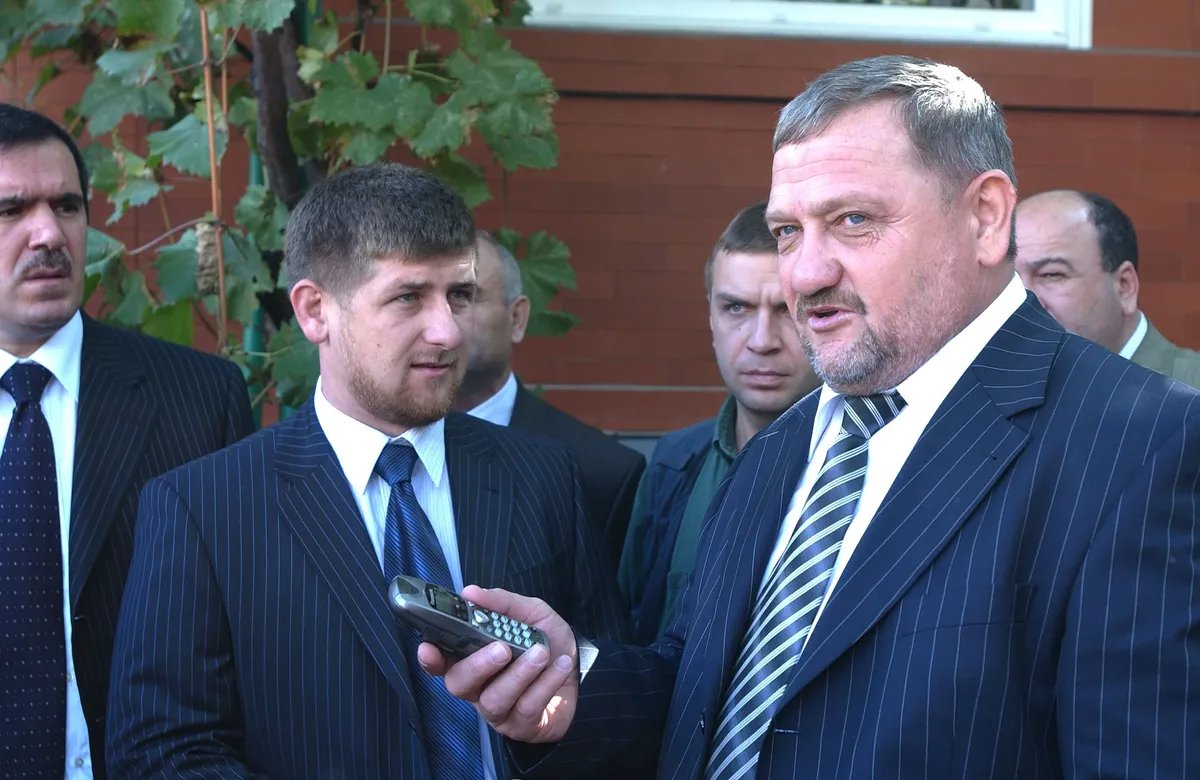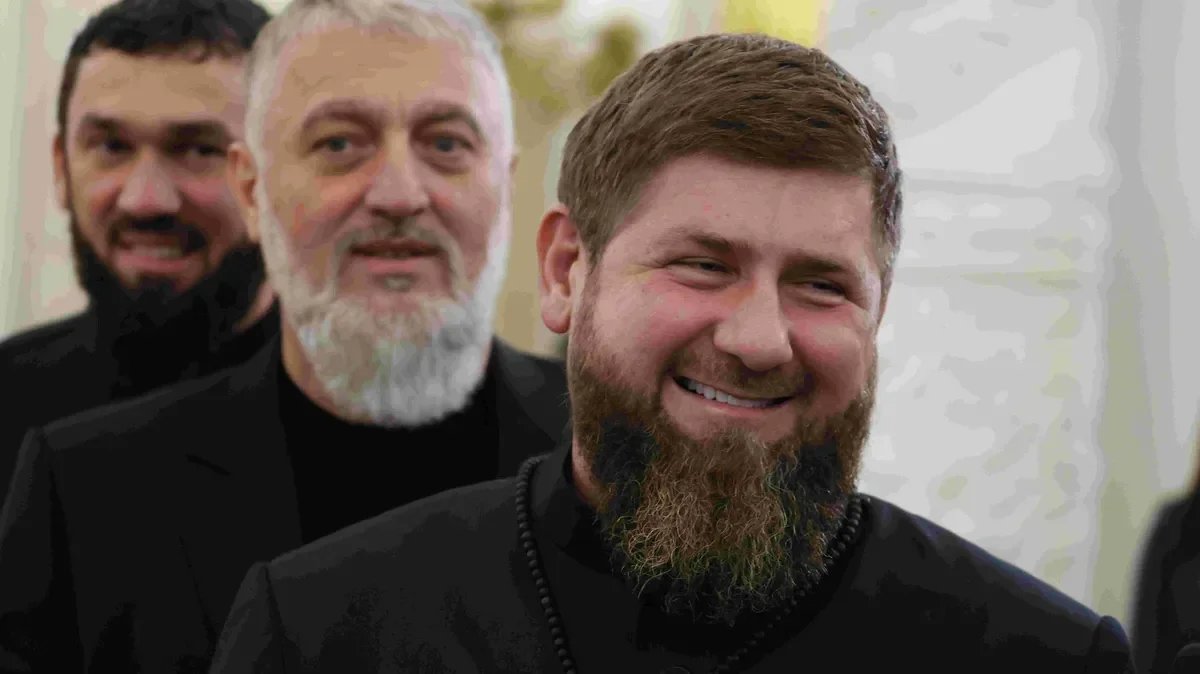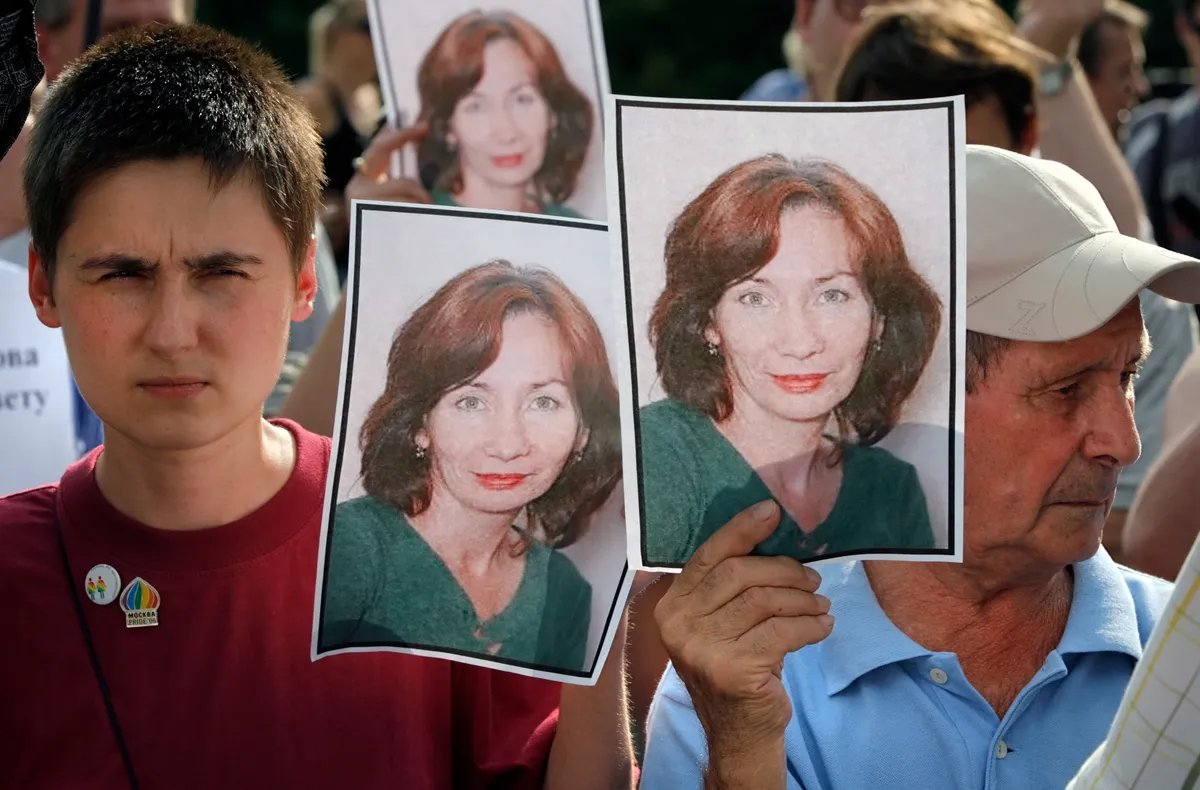Amid efforts to refine Russia’s vertical power structure in 2015, regional governors were ordered to stop using the title president, with the obvious implication that there could only be one man with that title in Russia. Yet the rule didn’t appear to apply to the Chechen republic, which is governed not by a mere president, but by none other than the “Father of the Chechen people”.
Ramzan Kadyrov is the only leader of a Russian region permitted to take a stance on international issues, to issue threats to world leaders, and to condemn decisions made by the Defence Ministry. What has allowed the Chechen strongman to accrue such privileges amid the ever more suffocating political atmosphere in Russia?
Dynastic ambition
The story of the Kadyrov family begins not in Chechnya but in the Kazakh city of Karaganda in Central Asia, where Kadyrov’s grandparents were exiled in the 1940s as part of the mass deportations of the Chechen and Ingush people carried out under Joseph Stalin. Kadyrov’s father, Akhmad Kadyrov, was born in Karaganda. Finally allowed to return to Chechnya in 1957, the Kadyrov family settled in the village of Tsentaroi, which has since been renamed Akhmat-Yurt in honour of Kadyrov senior.
Akhmad Kadyrov’s political career began in 1991. On 8 June that year, Chechen politician and former Soviet Air Force major general Dzhokhar Dudaev declared Chechen independence from Russia, a decision supported by Akhmad Kadyrov, who was an active figure within the republic’s religious administration at the time.
When the First Chechen War broke out in December 1994, Kadyrov was appointed Chechnya’s deputy mufti, and by spring 1995 he had been elected the supreme mufti of Chechnya with Dudaev’s support. At this time, both Akhmad and his teenage son Ramzan fought against the Russian military.
Ramzan Kadyrov is often quoted as having said “I killed my first Russian at 16”, which would have been in 1992 or 1993. Novaya Gazeta journalist Yulia Latynina heard Kadyrov utter these words in 2006 while in the anteroom to the office of Dmitry Kozak, the head of the State Commission on the Development of North Caucasus. Kadyrov has denied ever saying that, however, but has never challenged Latynina’s version of events in the courts.
By the time of the Second Chechen War (1999-2009), Kadyrov senior had switched his allegiance to Moscow and no longer supported pro-independence forces, opposed as he was to the spread of radical Islam in Chechnya.

Ramzan and Akhmad Kadyrov, October 2003, Photo: Scott Peterson / Getty Images
Russian President Vladimir Putin signed a decree appointing Akhmad Kadyrov the head of the Chechen Republic’s administration on 12 June 2000,
after which the Kremlin supported Kadyrov’s candidacy in the 2003 regional elections that saw him winning 80% of the vote and becoming the first president of Chechnya.
Kadyrov junior was appointed head of the presidential guard. Shortly after the election, Novaya Gazeta journalist Anna Politkovskaya published an interview with an electoral commission employee in the Chechen capital Grozny who admitted that at the polling station where they worked, Kadyrov senior had received just 22 votes, in stark contrast to the 780 votes officially reported.
Ramzan’s elevation
Kadyrov senior’s victory was short lived, however. Seven months after the election, during celebrations to mark the anniversary of World War II ending, an explosive device planted by Chechen Islamists went off under the VIP box at Grozny’s Dynamo stadium where Kadyrov senior was seated, killing dozens of people instantly. Kadyrov senior died on the way to the hospital. The very same day, a tearful 27 year-old Ramzan Kadyrov was ushered into Putin’s presence in the Kremlin dressed incongruously in a lurid blue tracksuit to receive the Russian president’s condolences.
Barred by Chechnya’s constitution from becoming president until he turned 30, Ramzan Kadyrov took up a position as first deputy to the chairman of the Chechen government the following day. However, it was clear to all observers that Kadyrov had become the most powerful person in the republic overnight following the death of his father.
Anna Politkovskaya managed to sit down with Kadyrov in 2004 for an interview in which he blamed journalists for fomenting the violence and division in the region. “If you had left us alone,” Kadyrov told her, “then we Chechens would have united a long time ago.”
“Who is ‘you’?” Politkovaskaya responded.
“Journalists like you. Russian politicians. You won’t let us restore order. You’re dividing us. You have come between the Chechens. You’re the enemy.”
Politkovskaya subsequently recalled fearing she would be shot in the back during the interview.
Shortly after turning 30 in October 2006, Kadyrov was appointed by Putin to be the president of the Chechen Republic.
History of violence
The month Kadyrov turned 30, Anna Politkovskaya was murdered by Chechen hitmen in the stairwell of her Moscow home. Although it remains unknown exactly who ordered her assassination, the Novaya Gazeta team is certain that Kadyrov was connected to it in some way. As many of Politkovskaya’s stories were about human rights violations in Chechnya, Kadyrov threatened Politkovskaya on several occasions.
One of Kadyrov’s first acts as Chechnya’s new president was to sign a series of decrees ostensibly to “fight terrorism”, which granted the authorities sweeping powers to label anyone that disagreed with it a terrorist and to lock them up. Soon, even Kadyrov’s business competitors started receiving this treatment.
Not wanting to repeat his father’s costly mistake, Ramzan Kadyrov rallied a large group of security officials around him who quickly became known popularly as “Kadyrovites”. While officially the republic’s law enforcement chiefs, this group was effectively handed unchecked power to terrorise anyone in the republic who dared offer any form of resistance to the new strongman in Grozny.

President of Chechnya Ramzan Kadyrov (right), State Duma Deputy Adam Delimkhanov (centre), and the chairman of Chechnya’s parliament Magomed Daudov (left). Photo: EPA-EFE / MIKHAIL METZEL / SPUTNIK/KREMLIN POOL
Nevertheless, Kadyrov continued briefing Moscow on his fight against “terrorists” and reported a decreasing number of attacks in what was previously Russia’s most volatile region.
Inevitably the re-establishment of some sort of stability in Chechnya came at a considerable cost, and soon the toll it was taking on its population started to become clear. In 2006, Human Rights Watch (HRW) released a report saying that agents of Chechnya’s Second Operational Investigative Bureau were detaining and torturing people.
“They attached wires to my fingers and ears, and started giving me electric shocks — I could not see the device, as they put a gasmask on my head, but I heard its clicking sound,” one of the detainees told HRW. “They pushed me against the wall and started beating me in my kidneys, and then threw me on the floor.”
The following year, the International Federation for Human Rights partnered with Russian human rights organisation Memorial to publish a report entitled “Torture in Chechnya: ‘Normalisation’ of Nightmare” in which it detailed the kidnappings and extrajudicial executions taking place in Kadyrovite Chechnya.
Electric shock torture reportedly remains the favoured torture technique of Chechen siloviki to this day.
Kadyrov has always denied allegations of human rights violations in Chechnya. Nevertheless, independent journalists and human rights activists working in the republic soon found that they had become targets in their own right. In July 2009, Memorial employee Natalya Estemirova was kidnapped in Grozny and taken to the neighbouring region of Ingushetia where she was shot dead. The head of Memorial, Oleg Orlov, blamed Estemirova’s death on Kadyrov personally. A month later, Chechen human rights defenders Zarema Sadulayeva and Alik Dzhabrailov were kidnapped and murdered.

A rally in memory of Natalya Estemirova, 2009. Photo: EPA / YURI KOCHETKOV
While assassinations and torture were terrorising the population in the wider republic, Grozny was being rebuilt literally from the ground up having been flattened by Russian airstrikes during the Second Chechen War. Moscow allocated huge sums of money to the restoration of the Chechen capital, and Kadyrov leveraged his loyalty to ensure a seemingly endless flow of federal funds into his fiefdom, for years earning Chechnya the biggest annual subsidies of any region in Russia, which, according to Kadyrov, stood at some 300 billion rubles (€2.92 billion) last year.
Moscow had no control over how this money was disbursed and took a very hands-off approach to what went on day-to-day in Chechnya. When asked how it was possible that the republic received such enormous amounts of funding, Kadyrov famously replied: “With Allah’s will.”
While busy establishing a totalitarian state-within-a-state in Chechnya, Kadyrov also found the time to burnish his credentials as a politician on the national and international stage. In 2009, he said: “Russia has to put an end to such ‘illnesses’ as Ukraine and Georgia.” Arguing amid the ensuing scandal that “the spirit” of Kadyrov’s remarks had been misinterpreted, Kadyrov’s representatives stressed that he had only been expressing a personal opinion, rather than the official position of Moscow. But no slapdown from the Kremlin followed.
The total and boundless loyalty to Russia on display from Kadyrov following the start of the 2014 war in eastern Ukraine arguably demonstrated the wisdom of Putin’s investment in the Chechen leader. Chechen soldiers were sent to eastern Ukraine to fight on the side of pro-Russian separatist troops, while The Financial Times quoted one Chechen fighter as saying that he and his fellow soldiers had been deployed to Ukraine on Kadyrov’s orders.
Kadyrov even went as far as writing on Telegram: “I’m Putin’s footsoldier. And even if the entire world turns against him, I will stand by him and will remain his loyal soldier.” In return, Moscow showed its gratitude by not interfering with anything that their trusted vassal did on his own territory.
Kadyrov at war
The full-scale Russian invasion of Ukraine eight years later became a far more serious test of Kadyrov’s loyalty to the Kremlin. On 25 February, just a day after the offensive was launched, Kadyrov addressed a rally in Grozny attended by several thousand Chechen security officials and announced that over 70,000 Chechen volunteer fighters were ready to go and fight alongside Russian troops in Ukraine.
However, Kadyrov’s role as a Kremlin loyalist became more complex after he began speaking out against the Russian Defence Ministry and its military chiefs, remarking publicly that the actions of the General Staff weren’t remotely sufficient to attain victory against Kyiv. Kadyrov also backed Wagner Group founder Yevgeny Prigozhin when the latter began excoriating the Defence Ministry for its failure to provide Wagner fighters with sufficient ammunition.
Prigozhin and Kadyrov subsequently fell out, however, and sparred verbally after Prigozhin made unflattering comments about Chechen military units in Ukraine.
Played out in a back and forth on Telegram, their ill feelings towards each other lasted until Prigozhin’s untimely death in a plane crash in August.
The Kremlin’s decision to make such a vast financial investment in Kadyrov as the brutal but stabilising force that has allowed it to retain control of Chechnya without engaging in permanent warfare in the region has left it dangerously reliant on one man, who despite being just 47 years old has been rumoured to suffer from serious health issues for years, as witnessed by his frequent weight fluctuations.
During his most recent health scare in September, Kadyrov disappeared from view for several weeks, during which multiple Telegram news channels reported he had travelled to Moscow for treatment at an elite hospital favoured by Kremlin insiders. Kadyrov’s team attempted to discredit these reports by releasing extremely unconvincing, undated footage of Kadyrov strolling in woodland.
Over the past 15 years, Kadyrov has used fear to construct a formidable state within a state in Chechnya. His kingdom, in which he is an absolute monarch, lives by its own rules and Kadyrov and his family have been granted freedoms that would be unthinkable for other regional leaders in the country. Taken together, this only begs the burning question: what comes after Kadyrov?
Join us in rebuilding Novaya Gazeta Europe
The Russian government has banned independent media. We were forced to leave our country in order to keep doing our job, telling our readers about what is going on Russia, Ukraine and Europe.
We will continue fighting against warfare and dictatorship. We believe that freedom of speech is the most efficient antidote against tyranny. Support us financially to help us fight for peace and freedom.
By clicking the Support button, you agree to the processing of your personal data.
To cancel a regular donation, please write to [email protected]
